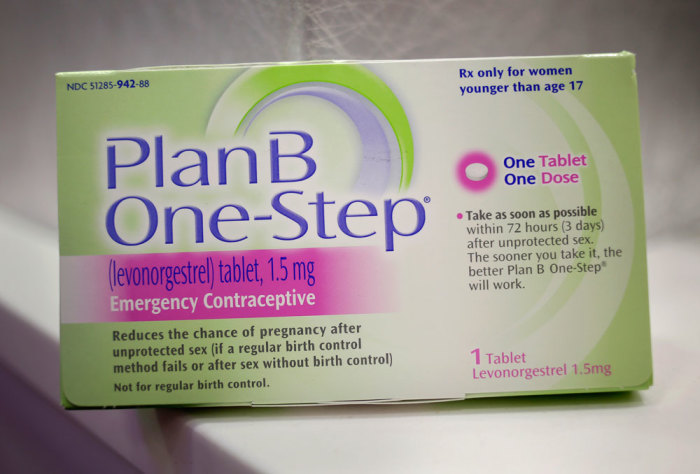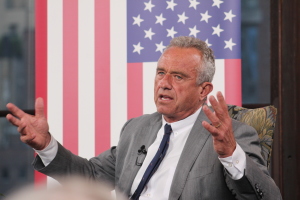Major retail chains ration Plan B as states enact abortion bans after overturn of Roe v. Wade

Major retailers are reportedly rationing the emergency contraceptive pill Plan B due to an apparent spike in demand as states begin enacting abortion bans after the U.S. Supreme Court overturned Roe v. Wade, the 1973 opinion that legalized abortion nationwide.
The court's 6-3 ruling in Dobbs v. Jackson Women's Health Organization stated that the Constitution does not confer a right to abortion, leaving its legality to be determined on a state-by-state basis.
Retailers such as CVS, Walmart and RiteAid are restricting the purchase of Plan B, which was out of stock or in short supply on many retail websites on Monday.
The pills and similar products typically sell from $10 to $50, with the "cheapest" option available from major retailers' websites being $35.
According to The Wall Street Journal, CVS is limiting purchases of Plan B to three. While Walmart had some pills available without limits, The Journal reports that is only in cases where the product wouldn't ship until next month. However, pills available this week were limited to four or six.
In a Tuesday statement to The Christian Post, a Walmart spokesperson explained that "[m]any of our products have online purchase limits in place. During times of fluctuating demand, these limits may change."
Walgreens and CVS did not immediately respond to CP's request for comment.
A spokesperson for RiteAid told CNN that the pharmacy chain is also limiting the sale of Plan B to three per customer.
A CVS spokesperson told WSJ that the company implemented temporary purchase limits on Plan B to ensure "equitable access" to the pill and allow the company to have an ample supply online and in stores.
Walgreens Boots Alliance claims the purchase limits on its website were done in error, and the company intends to correct it. A spokesperson for the retail pharmacy chain told WSJ that the corporation is investigating the matter.
According to the Food and Drug Administration, Plan B is a form of emergency contraception that comes in the form of two levonorgestrel pills to be taken by mouth after unprotected intercourse. The product is available over-the-counter and can be purchased without a prescription.
The pill prevents ovulation by stopping the release of an egg from the ovary and may also prevent fertilization by blocking the union of sperm and egg. In some cases, Plan B may prevent implantation by stopping a fertilized egg from attaching to the womb.
A 2016 Planned Parenthood report states that Plan B is not the same thing as the abortion pill, which contains a medication called mifepristone to terminate the pregnancy. It is typically taken with a drug called misoprostol, which completes the abortion.
States throughout the country have begun enacting abortion bans following the Dobbs decision.
According to the Guttmacher Institute, more than 20 states have "trigger laws" on the books which can go into effect and ban abortion in the absence of Roe. Those states include Arkansas, Idaho, Kentucky, Louisiana, Mississippi, Missouri, North Dakota, Oklahoma, South Dakota, Tennessee, Texas, Utah and Wyoming.
Missouri became the first state to ban abortion, with many states following or preparing to follow its example.
In an opinion Friday, Republican Attorney General Eric Schmitt declared that "the United States Supreme Court has overruled, in whole in part, Roe v. Wade," thereby granting "the state of Missouri the authority to regulate abortion to the extent set forth" in section 188.017 of the "Right to Life of the Unborn Child Act."
This portion of the law states that "notwithstanding any other provision of law to the contrary, no abortion shall be performed or induced upon a woman, except in cases of medical emergency."
South Dakota Gov. Kristi Noem also announced Friday that "we have a law on the books that makes abortion illegal immediately, except to preserve the life of the mother."




























